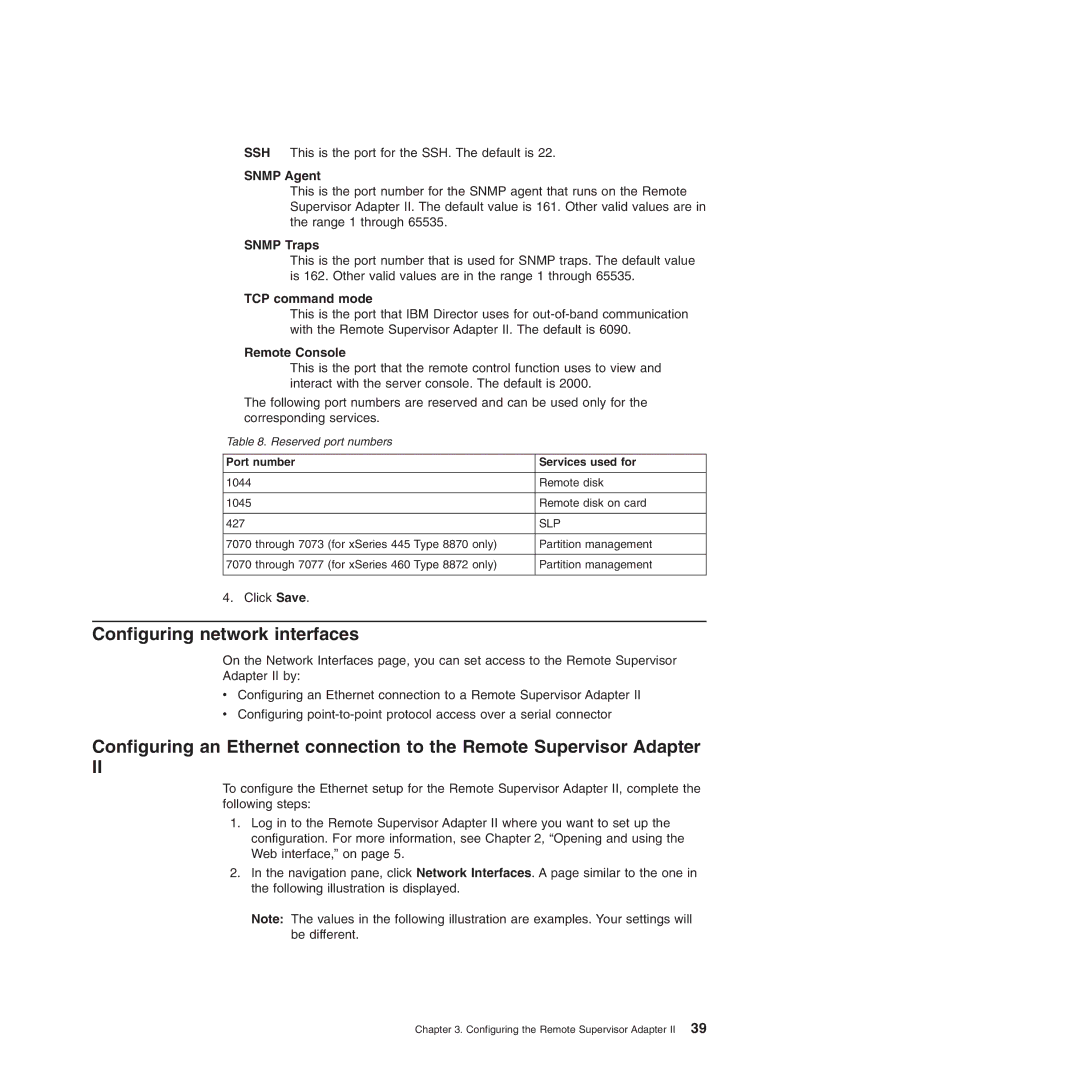SSH This is the port for the SSH. The default is 22.
SNMP Agent
This is the port number for the SNMP agent that runs on the Remote Supervisor Adapter II. The default value is 161. Other valid values are in the range 1 through 65535.
SNMP Traps
This is the port number that is used for SNMP traps. The default value is 162. Other valid values are in the range 1 through 65535.
TCP command mode
This is the port that IBM Director uses for
Remote Console
This is the port that the remote control function uses to view and interact with the server console. The default is 2000.
The following port numbers are reserved and can be used only for the corresponding services.
Table 8. Reserved port numbers
Port number | Services used for |
|
|
1044 | Remote disk |
|
|
1045 | Remote disk on card |
|
|
427 | SLP |
|
|
7070 through 7073 (for xSeries 445 Type 8870 only) | Partition management |
|
|
7070 through 7077 (for xSeries 460 Type 8872 only) | Partition management |
|
|
4. Click Save.
Configuring network interfaces
On the Network Interfaces page, you can set access to the Remote Supervisor
Adapter II by:
vConfiguring an Ethernet connection to a Remote Supervisor Adapter II
vConfiguring
Configuring an Ethernet connection to the Remote Supervisor Adapter
II
To configure the Ethernet setup for the Remote Supervisor Adapter II, complete the following steps:
1.Log in to the Remote Supervisor Adapter II where you want to set up the configuration. For more information, see Chapter 2, “Opening and using the Web interface,” on page 5.
2.In the navigation pane, click Network Interfaces. A page similar to the one in the following illustration is displayed.
Note: The values in the following illustration are examples. Your settings will be different.
